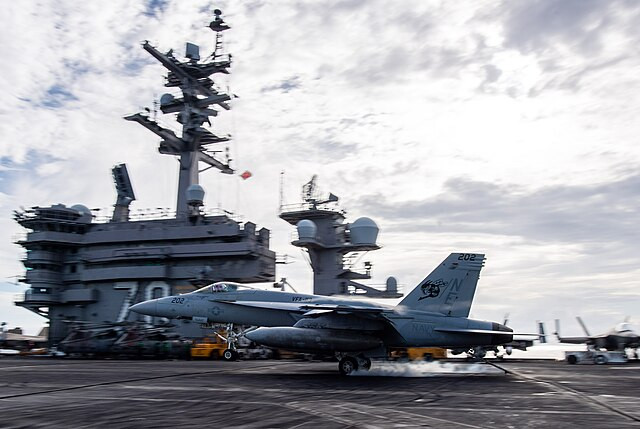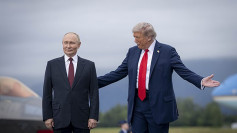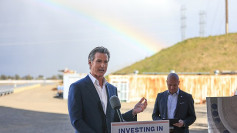The United States has deployed a second aircraft carrier, the USS Carl Vinson, to Mideast waters just days before a crucial second round of nuclear negotiations with Iran, satellite images analyzed by the Associated Press revealed Tuesday. This deployment, intended to support the USS Harry S. Truman, coincides with continued U.S. airstrikes against Iran-backed Houthi rebels in Yemen, which the Trump administration has explicitly linked to pressuring Tehran in ongoing talks.
Satellite images captured by the European Union's Copernicus program confirmed the Vinson, escorted by the missile cruiser USS Princeton and destroyers USS Sterett and USS William P. Lawrence, positioned near Yemen's Socotra Island. Shortly after the images surfaced, U.S. Central Command shared footage online, describing the operations as "24/7 strikes" targeting the Houthis.
Iran and the U.S. remain divided on the specifics of uranium enrichment and ballistic missile restrictions, key sticking points since President Donald Trump abandoned the 2015 nuclear agreement in 2018. U.S. Mideast envoy Steve Witkoff, who led last weekend's initial talks in Oman, highlighted that any new agreement must strictly limit uranium enrichment to 3.67%, down from Iran's current enrichment of up to 60%.
"They do not need to enrich past 3.67%," Witkoff emphasized in an interview with Fox News. "In some circumstances, they're at 60%, in other circumstances, 20%. That cannot be." He further stated, "This is going to be much about verification on the enrichment program, and then ultimately verification on weaponization."
Iranian Supreme Leader Ayatollah Ali Khamenei, in cautious yet hopeful remarks to Iranian officials, described the initial dialogue round as having been "executed properly." However, he cautioned against undue optimism or pessimism, emphasizing Iran's willingness to continue talks with clearly defined "red lines."
"The first steps have been taken well," Khamenei said, adding, "Of course, we don't fully trust them-we know who we're dealing with-but we are optimistic about our own capabilities."
Iran's state-linked newspaper Javan also signaled Tehran's potential willingness to limit its uranium enrichment. "Something that we have done before, why should we not carry it again and reach a deal?" an editorial stated, dismissing concerns that such an agreement would mean abandoning Iran's core principles.
Nonetheless, missile capabilities remain a deeply contentious issue. Witkoff clarified that the Trump administration seeks explicit constraints on Iran's ballistic missile arsenal, which Iran views as essential for national defense. Tehran's missile program was one reason Trump cited when withdrawing from the original deal.






